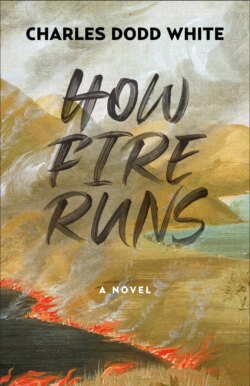Читать книгу How Fire Runs - Charles Dodd White - Страница 14
На сайте Литреса книга снята с продажи.
Оглавление5
GAVIN CONTINUED TO SCAN THE DISCUSSION BOARDS LONG AFTER Harrison had gone on to bed. Storm Front remained as active as ever, but it was all rhetoric. All mud people and Jewish capital and White Lives Matters and little in the way of practical matters. There were some interesting rumblings about getting a cadre together to oppose the leftist Antifa protestors on several of the California campuses when the student groups brought in climate skeptics, but there seemed to be little money behind it. More promising and closer to home was the beginning of a group devoted to traveling with Richard Spencer through colleges in the Southeast and working to agitate the protesters who would turn up. But even there, confusion rather than cohesion seemed to prevail. Everyone wanting to take credit with no one willing to take charge of the details that would ensure the thing was properly done. Then there was the case of a group running a disinformation campaign against a professor at a small university in North Georgia. He’d posted on some thread and been fool enough to use his real name. A minute on Google and the man’s whole life had tumbled open as easily as if it had a combination. Several people had already run some bots with fake Ratemyprofessor reviews that accused him of anti-Semitic assignments, the occasional race slur. Anything that would have got the university honchos all riled up. It tickled Gavin to think that the Left could be so easy to lead by its own nose, so anxious to tear itself to pieces.
He shut down the computer and pushed away from the desk, sat in the darkness of the room until his eyes could adjust. He stepped into a pair of slippers he kept at the door and walked silently down the hall and stairs. He paused at several doors to see if he could hear the others sleeping before he moved on. It was a strange habit, this walking the floors while everyone else was asleep, but he’d been subject to it since he was a child. He would stand for many hours of the night and be aware of the enclosing emptiness of his surroundings and absorb the fact that he was solely aware of it, the others all trapped behind the high walls of their own dreams.
Sometimes it crushed him to realize how alone he was at this point in his life. It happened to everyone eventually, being slowly stripped of the people who made you who you were. But he could never escape the sense that his bereavement was premature, unfair. Both his parents gone by the time he was thirty. Close to two decades now that he’d been without blood ties. Perhaps that’s what drove him toward building Little Europe. There had been other factors at play, of course, but maybe it was this keen awareness of being utterly alone that allowed him to recognize the power such a vision could mold. Great deeds could be subverted by a fear of hurting those you loved. But greatness was surely a worthy answer to grief.
He went outside and sat on the front steps, the huge front door left open at his back like a mouth. That’s what it was, too, what it was meant to be. A mouth to speak of a truth that couldn’t be acknowledged or understood by the rest of America. This place in the woods to bring the possibility of a new country together. A small country within the country. When he had first heard the idea of Little Europe he knew he was the man to make it happen. Not simply the idea of a pure and isolated community as had been tried elsewhere, a commune that would be subject to its own vulnerable politics and struggles for power. No, the necessary difference would come when it was made part of an established government. They would have to entrench politically in a place that would be receptive to the idea of white nationhood. That was true revolution, when the revolution became invisible, when it became part of the routine. That was what would make the ultimate difference.
He had heard of efforts made out in Montana and Wyoming, places where the communities had taken root in the midst of great isolation. Preserves or reservations of people who stockpiled arms and foolishly became noticed by the FBI. But these broke down fairly quickly. They dissolved because of a lack of cogency. It was unclear who they were fighting in the middle of all that wind and tall grass. Their seclusion was easy to ignore or oppress. It failed to become a message. It failed to understand the idiom it needed to speak.
Then he had realized the mistake had been that Little Europe was a place that had to be created rather than one that simply needed to be wakened. Why settle empty territory? Why not simply enter the minds of the sleepers and reveal to them their own self-interest? Wake them and show them the world could be shaped by the imagination of those with the strength and fortitude to do so.
He stood and moved out past the yard and crossed into the tree line until he felt himself muted by the entanglement of trees, the undergrowth. There was a comfort in this invisibility. How to explain that? And yet it took a kind of heroism to accept the role one was destined for, didn’t it? To be the mind controlling the hand, the abstract behind the accomplishment. There was nothing wrong in agreeing with the nighttime in his soul. It was where action mounted. It was where the loss of sleep surrendered something more.
